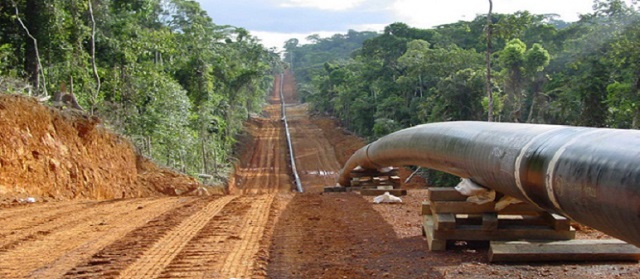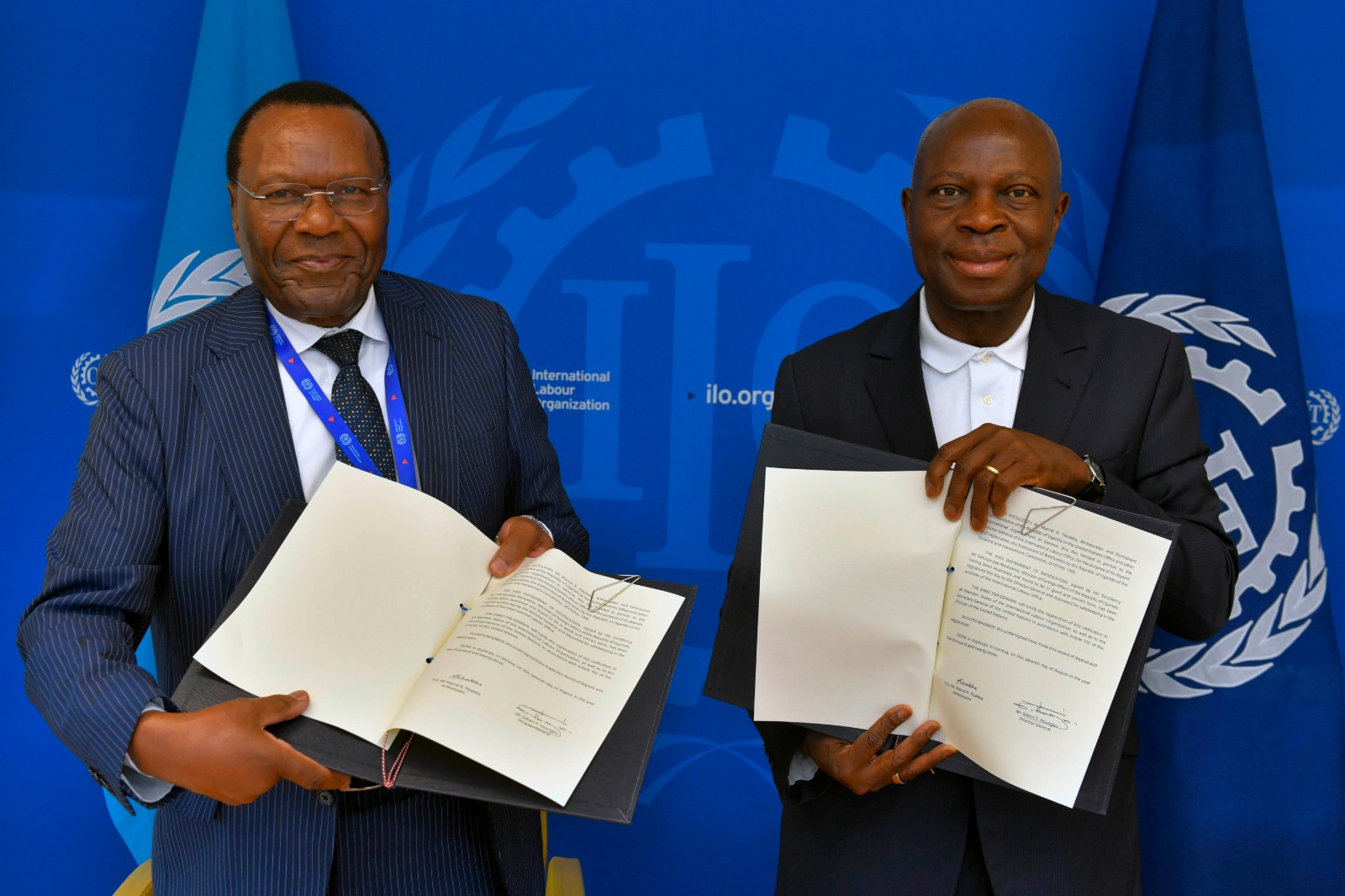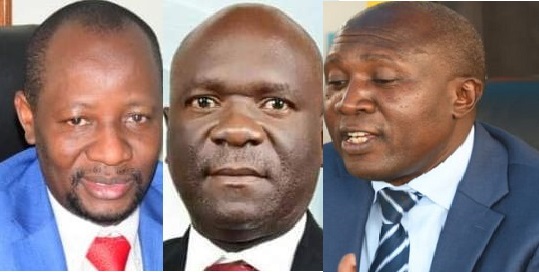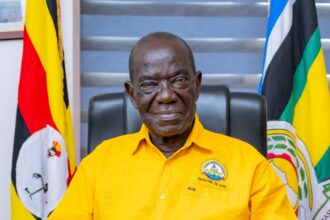A new study has heightened concerns about the potential impact of the East African Crude Oil Pipeline (EACOP) on the delicate wetlands of Uganda.
The study reveals that the construction and operation of the pipeline could pose significant threats to these vital ecosystems, raising alarm about potential ecological damage and loss of biodiversity.
The leaflet titled “Eacop Impacted Wetlands in Uganda” released on July 28th, identifies five extensive wetland systems that will be traversed by the Eacop pipeline. This poses a potent threat to the swamps and their broader ecosystems. These wetlands are interconnected with vital water sources such as Lake Victoria, Lake Albert, and the Victoria Nile.
However, the individuals leading the Eacop project’s oil sector have dismissed the report’s conclusions, deeming them biased and originating from a group consistently opposed to Uganda’s oil exploration efforts.
The African Institute for Energy Governance (Afiego), responsible for commissioning the study, contends that while horizontal direction drilling is used for river crossings, the Environmental and Social Impact Assessment (ESIA) for EACOP downplays the potential adverse effects on the wetlands.
The Afiego report highlights that the project proponents have suggested using the open cut construction method, rather than horizontal directional drilling, for crossing the wetlands. Experts have criticized this technique, pointing out that it could lead to significant impacts, particularly within wetland areas.
For EACOP, a 30-meter corridor is required, which environmentalists argue is substantial, especially considering wetlands. They emphasize that activities like trench digging, backfilling, and other construction-related tasks might disrupt the hydrological cycle and water flow within the wetlands.
Water catchment areas under threat
Important wetland areas such as Wambabya, Kafu, Nabakazi, Katonga, and Kibale-Bukora, each consisting of extensive swamp regions spanning 10 districts, are considered key habitats to aquatic life.
Despite a study labeling it as another effort by “poverty conservationists” to hinder the project, oil executives in Kampala shrugged off concerns. This comes as Uganda continues to expend $2 billion annually on fuel imports.
Ali Sekatawa, director of legal and corporate affairs at the Petroleum Authority of Uganda (PAU) asserted that the oil project will proceed without negotiation.
Peter Muliisa, chief legal and corporate affairs officer at the Uganda National Oil Company (UNOC), pointed out that the EACOP ESIA report indicates the pipeline route minimally impacts swamps and only encounters “two rivers” across the 10 traversed districts in Uganda.
“We were forced to change the course a few times where we could avoid the sensitive biodiversity sites,” he contended.
To ward off environmental threats, Muliisa suggested that the project will employ horizontal direction drilling to prevent any contact between the pipeline and river waters, thus reducing potential harm.
The Hoima-Tanga pipeline, spanning 1,443km, will be the world’s longest heated pipeline, intended to transport Uganda’s waxy crude oil.
Environmentalists express concerns about the insulation failing, which could have dire consequences for biodiversity conservation. Uganda’s wetlands are home to various aquatic species, hippos, and numerous bird species vital for tourism.
Diana Nabiruma, Afiego’s senior communications officer, emphasized that without protection from heat, the wetlands might struggle to regenerate.
She also warned that although the pipeline’s construction is temporary, it could permanently open up the wetlands to encroachment. Muliisa stressed that Uganda’s oil industry is crucial and suggests critics focus on improving the country’s carbon footprint rating for oil production instead of halting projects.
TotalEnergies and CNOOC, Uganda’s joint venture partners, assert that the oil projects have been designed to manage the country’s carbon footprint. They plan to establish five solar farms along the pipeline route to generate 80 percent of the necessary electricity, with the remaining 20 percent sourced from the grid.
Stating that Uganda’s projects including Tilenga, Kingfisher, and EACOP emit around 13.3kg of carbon dioxide per barrel, experts highlight that this figure is notably lower than the global average of 33kg per barrel.
Uganda’s oil discovery of 6.5 billion barrels in 2006 faced delays due to conflicts with international oil companies. These setbacks have been further exacerbated by the worldwide effort to align with the climate objectives of the 2015 Paris Agreement, which aims for net-zero greenhouse gas emissions by 2050, involving the shift away from fossil fuels to cleaner energy sources.
Opposition to EACOP
Consequently, criticism have arisen around the development of sector infrastructure, particularly EACOP. This project, originating in Uganda’s Lake Albert region and ending at the Tanzanian port of Tanga, has faced financing challenges as risk-averse global lenders remain cautious due to the prevailing skepticism.
Research published in the Scientific World Journal Studies of 2023 suggests that Uganda’s wetlands possess an average net contribution of approximately $10,491 per hectare annually, culminating in a total value surpassing $22.5 billion for the intact wetlands, spanning 2,152,600 hectares.
In 2002, these wetlands contributed about $11.4 billion annually to local households. Nearly 80 percent of the communities residing near these wetlands utilize them for multiple purposes, including enhancing their livelihoods, ensuring food security, and fulfilling needs related to drinking water, irrigation, hydropower generation, recreation, fisheries, industry, transportation, waste disposal, and agriculture.
Diana Nabiruma warns that potential outcomes of the project could include reduced water access for certain users, siltation due to trenching, and the possibility of smaller wetlands drying up from soil dumping into larger ones.
As the nation grapples with the balance between economic development and environmental preservation, experts and activists are urging for a comprehensive assessment of the project’s environmental implications and sustainable alternatives to safeguard Uganda’s invaluable wetlands.
Do you have a story in your community or an opinion to share with us: Email us at Submit an Article









